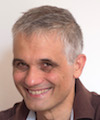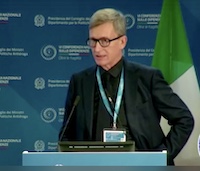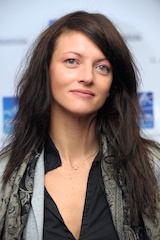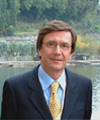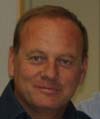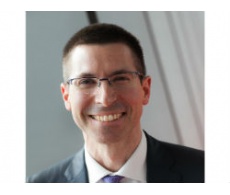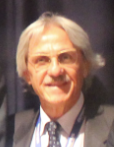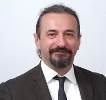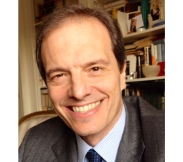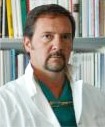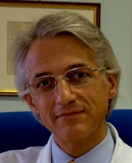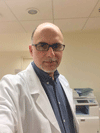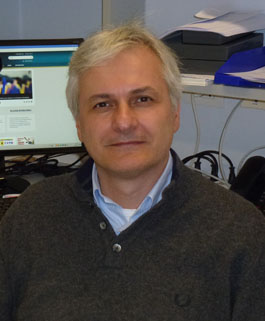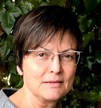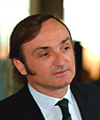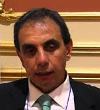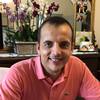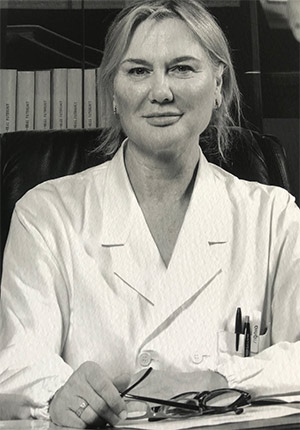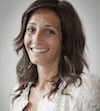The teaching is organized as follows:
Period
LEZIONI 2° SEMESTRE
Period
LEZIONI 2° SEMESTRE
Learning outcomes
The basic aim of the course of General Pathology and Immunology are: (i) to acquire the conceptual and scientific tools to explain the causes and mechanisms of human disease and the role of the immune system; (ii) to examine molecular mechanisms responsible for cell and tissue damage and implicated in the host response to cell damage and in the repair of tissue injury. In addition, the course addresses pathophysiological mechanisms at the basis of alterations of the host main homeostatic systems, compensation responses induced by these alterations and their potential significance as mechanisms of diseases. Moreover, tumor eathiology, molecular mechanisms responsible of neoplastic transformation, development of primary tumors and metastasis, and the systemic consequences of tumor-related pathologies (paraneoplastic syndromes, chacexia) will be explored. Particular attention will be devoted to the acquisition of scientific terms used in pathology.
Program
------------------------
MM: IMMUNOLOGIA
------------------------
Organization of the immune system: 1. Anatomy of the immune syste: lymphoid organs in general (spleen, lymph nodes, Peyer patches, appendyx, bone marrow and thymus), lymphoid organs of the oral cavity (palatin, lingual and pharynx tonsils, district and intralingual lymph nodes, submucosal lymphatic cells, lymphatic tissue of salivary glands and of the gum) 2. Cytology of the immune system: lymphocytes, NK, dendritic cells. The lymphocytes classes: B and T lymphocytes and their subclasses. Antigens and antibodies. 3. Biochemistry of the immune system: molecules (Immunoglobulins, T cell receptor, MHC and costimulatory molecules). Physiology of the immune system: 1. Antigen processing and presentation. 2. The specific adaptive responses: cell mediated immune response and humoral. 3. Cyitokines and cell cooperation. 4. Defence against infections. 5. Defendive and offensive responses. 6. Active and passive immunoprophylaxis. 7. Immune tolerance. Pahology of the immune system: 1. Hypersensibility reactions. 2. Autoimmune diseases. 3. Immunodeficits. 4. Immunity and tumors. 5. Immuno-hematologya, blood groups. 6. Immunology of transplantation and HLA system. Immunology of the oral cavity: 1.Ecosistema e microbiologia del cavo orale. La placca batterica. Attivazione linfocitaria da parte di microrganismii a livello del cavo orale. 2. I meccanismi effettori umorali e le IgA secretorie. 3. Immunologia delle infezioni orali: carie, malattia parodontale, malattia pulpo-apicale, infezioni virali, micosi. Immunopathology of the oral cavity: 1. Systemic immune diseases and influences on the oro-pharynx; 2. The oral outcomes of hypersensibility and autoimmunity; 3. Consequences of the primary and secondary immune-deficiencies on the oral cavity, in particular HIV infections; 4. Immunology of dental transplantation.
------------------------
MM: PATOLOGIA GENERALE
------------------------
1. Introduction General concepts Homeostasis. Pathogenesis Etiology Glossary 2. Cellular pathology: basic mechanisms of cellular damage; biochemical lesion. Pathogenesis of hypoxia, ischemia and oxidative stress. Oxygen radical-induced pathologies. Pathogenesis of radiation damage. Biological causes of diseases: general concepts of pathogenesis of infectious diseases. Endotoxins and exotoxins: physical-chemical features, biological effects, molecular basis. Cellular death: necrosis. Serum markers of necrosis. Necrosis pathologist classification. 3. Introduction to the immune system: cellular composition and function. The hematopoietic system: blood cell composition; hematocrit; leukocyte formula. Functional and morphological features of leukocyte cell populations. The reticulo-endothelial system. Differentiation and maturation of the lymphoid and myeloid cell populations. Innate and acquired immune responses: general concepts. Inflammation: causes, cardinal signs, angiophlogosis and histoflogosis. The vascular response. Exudate: features and functions. The cellular response: leukocyte migration, rolling, activation, firm adhesion and diapedesis. Adhesion molecules: selectins, integrins, immunoglobulins. Chemotaxis and chemotactic factors. Leukocyte effector mechanisms (phagocytosis, killing and degradation of phagocytosed microbes) Defects of innate immune cells: LAD, CGD. Chemical mediators and regulators of inflammation. Coagulation; Complement; chinins, plasmin. Cellular proinflammatory mediators: (i) preformed; (ii) newly synthesized (fast); (iii) newly synthesized (slow). Cytokines: general concepts; cytokine families; physiological role; mechanisms of action. Chemokines: C, CC, CXC, CX3C. Proinflammatory cytokines: TNF alpha, IL-1, IL-6: producing cells, stimuli, biological role, local, systemic and pathologic effects. Autoinflammatory syndromes: definition, causes, therapeutic strategies. Inhibition of proinflammatory cytokines: IL-10 and IL-1ra. Anti-cytokine therapy in autoimmune diseases. Cytokine response in sepsis and physical exercise. Interferons: classes, producing cells, stimuli, biological and pathological role. Systemic effects of inflammation. Pathogenesis of septic shock. 4. Outcomes of acute inflammation. Chronic inflammation. Granuloma. Resolution: Regeneration and repair. Scarring 5. Genoma ed epigenoma. The "Histone code". Non-coding RNAs. Apoptosi: estrinsic and intrinsic pathway. 6. Mechanisms regulating cellular differentiation and proliferation: pathological changes. Metaplasia, dysplasia and neoplasia. Neoplasia (general concepts) Morphological, molecular, metabolic, genetic and functional features of the neoplastic cell. Cancer etiology and pathogenesis. Cancer natural history. Molecular bases of carcinogenesis: proto-oncogenes, oncogenes, tumor suppressor genes. Oncogenes classes: (i) growth factors (EGF); (ii) growth factor receptors (EGFR/ErbB, Her2 receptor/Neu); (III) signal transduction proteins (ras); (IV) nuclear transcription factors (myc); (V) chromatin-associate proteins; (VI) cell cycle control; (VII) microRNA; (VIII) pro and anti-apoptotic proteins (Bcl2). Tumor suppressor genes: Cyclins, retinoblastoma, p53: physiologic and pathologic role. The Knudson hypothesis. Viral carcinogenesis. Nomenclature. The TNM system. Benign and malignant hematologic neoplasia. Head and neck cancer. Metastasis: molecular basis of metastasis generation ad progression. Neoplastic cachexia and paraneoplastic syndromes. Tumor immunology.
Bibliography
Reference texts
| Author |
Title |
Publishing house |
Year |
ISBN |
Notes |
| G.M. Pontieri |
Elementi di Patologia generale e Fisiopatologia Generale
(Edizione 4)
|
Piccin |
2018
|
978-88-299-2912-2 |
|
| Abul K. Abbas, Andrew H. Lichtman and Shiv Pillai |
Le basi dell' immunologia (Fisiopatologia del sistema immunitario)
(Edizione 5)
|
Edra LSWR S.p.A. |
2014
|
978-88-214-4255-1 |
|
| Mozzo Pierluigi |
Materiale didattico e informatico distribuito dal docente
|
|
2018
|
|
|
Examination Methods
------------------------
MM: IMMUNOLOGIA
------------------------
oral
------------------------
MM: PATOLOGIA GENERALE
------------------------
Oral test.
Students with disabilities or specific learning disorders (SLD), who intend to request the adaptation of the exam, must follow the instructions given HERE
 mila.dallapreda@univr.it
mila.dallapreda@univr.it
 guido.martignoni@univr.it
guido.martignoni@univr.it
 alessia.pardo@univr.it
alessia.pardo@univr.it

 +39 045 8027657
+39 045 8027657


